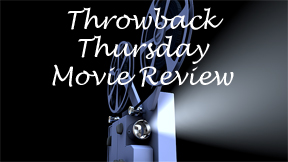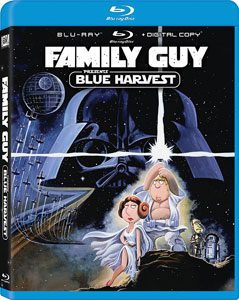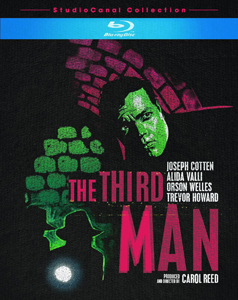Any dive into the great film noirs has to include “The Third Man” (1949), often ranked among the best British productions of all time. Interestingly, among all the noir trappings, it includes an incongruous score – sometimes morose, but also sometimes sprightly zither music by Anton Karas.
But rather than criticizing director Carol Reed’s classic for failing to follow the rules of noir there, I instead want to dig deeper into his choice. Whether a viewer grasps everything at first or not (and certainly there’s no shame if you don’t), “The Third Man” clearly features deliberate choices.
I also want to know more about cinematographer Robert Krasker’s often canted camera angles. Are they narrative clues about what’s true and what’s a lie? And then there’s the question of the title itself.

“The Third Man” (1949)
Director: Carol Reed
Writers: Graham Greene
Stars: Orson Welles, Joseph Cotten, Alida Valli
Initially driving the plot is American pulp novelist Holly Martins’ (“Shadow of a Doubt’s” Joseph Cotten) search for a “third man” he hears about from a Vienna hotel porter. Martins arrives in the bombed-out post-WWII city to meet his old friend Harry Lime (Orson Welles), but finds out Lime has been run over by a car and killed.
Two men – Lime’s shady friends — carried Lime across the street, but the unbiased porter, from a window above, saw a third man. Martins’ search for this figure drives his actions and our interest, because it seems only narratively fair that this person will have all the answers: Was this truly an accident? If not, why was Lime killed?
Postwar pursuit
By the film’s end, I was initially frustrated by how this core question is resolved (or not resolved) but a cursory web search reveals – and I’m not surprised – that the storytelling choice was purposeful and metaphorical. Another reason for a deeper dive.
On the surface, “The Third Man” is plenty compelling already, as Graham Greene pairs Martins’ search for answers with a stark portrayal of post-war governance. Four nations police Vienna after the defeat of the Nazis, and the city is separated into four sectors.
Fascinatingly, the police are authoritarians but not corrupt or next-level-evil authoritarians. Major Calloway (Trevor Howard) initially had my suspicions – perhaps from watching Hitchcock films where the police can never be trusted – but I soon realized he and his assistant are straight shooters.
When they take femme fatale Anna Schmidt’s (Alida Valli) papers, they say it’s to examine them and then return them. And they are actually being honest about that. Everyone in this closed city is at the mercy of the police, but they know they are, and they know the rules of the game. “The Third Man” is grim as hell, but refreshing in its honesty – and that zither music helps too.

And, on the other side of that same line, the pursued man is not purely a persecuted citizen. His black-market dealings in watered-down penicillin lead to horrible conditions, and eventually death, for innocents. While the screenplay doesn’t dive into why black markets happen – and that’s fine (the rabbit hole has to stop being dug at some point) – it’s fair to say the villain is indeed callous.
Delicious dialog
Greene’s greatest achievement, though, is the dialog in this imminently quotable film. The beleaguered but also deliciously cocky Martins gets most of the good ones. When he tells Callaway “I’m sorry, too” I wonder if that influenced Han Solo’s line to Lando in “The Empire Strikes Back.”
One of the best zingers from a villain ever, though, was – according to Greene – written by Welles on the set, inspired by an older quote.
“Like the fella says, in Italy for 30 years under the Borgias they had warfare, terror, murder and bloodshed, but they produced Michelangelo, Leonardo da Vinci and the Renaissance. In Switzerland they had brotherly love. They had 500 years of democracy and peace, and what did that produce? The cuckoo clock. So long, Holly.”
Among actor-written dialog, that’s gotta rank up there with Rutger Hauer’s “tears in rain” monolog in “Blade Runner” and Harrison Ford’s “I know” in “The Empire Strikes Back.” Like funny jokes that don’t make logical sense, it doesn’t matter that the Swiss don’t make cuckoo clocks. That might even enhance the quote.
If a viewer is searching for a great noir, “The Third Man” maybe shouldn’t be their first or second choice, because it’s not the ultra-purest example of the form, largely due to the zither preventing us from totally wallowing in a grim tone. But it’s a very solid third choice.
IMDb Top 250 trivia
- “The Third Man” ranks No. 205 on the list with an 8.1 rating.
- It’s the only 1949 film on the list.
- It’s the top-rated film for both Reed and Greene, although Reed won an Oscar for another work (“Oliver!”) and Greene was nominated for another work (“The Fallen Idol”). “The Third Man’s” lone (well-deserved) Oscar win came for Krasker’s cinematography.
- Of course, you’re wondering what other movies with ordinal numbers are on the list. Glad you asked. “The Sixth Sense” (No. 145), “The Seventh Seal” (No. 214) and “12th Fail” (No. 60).

